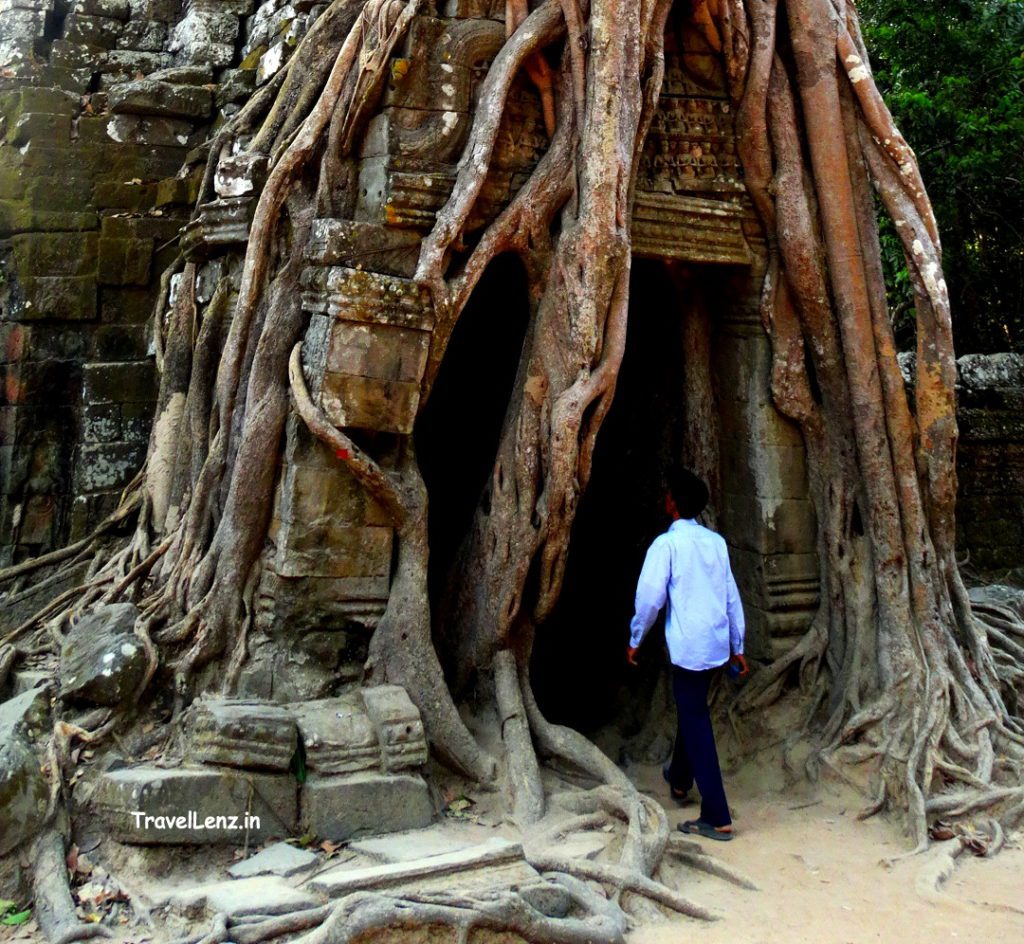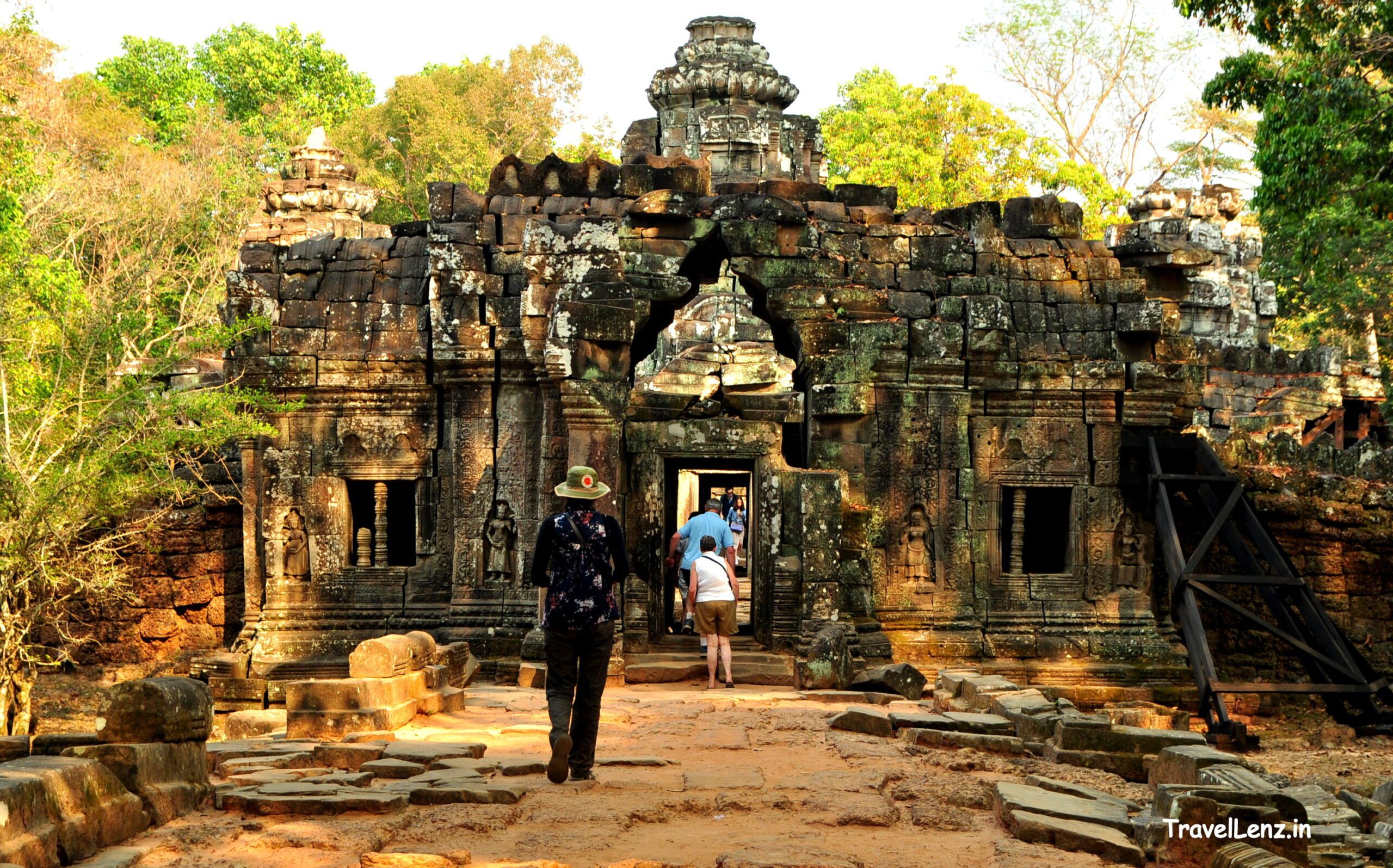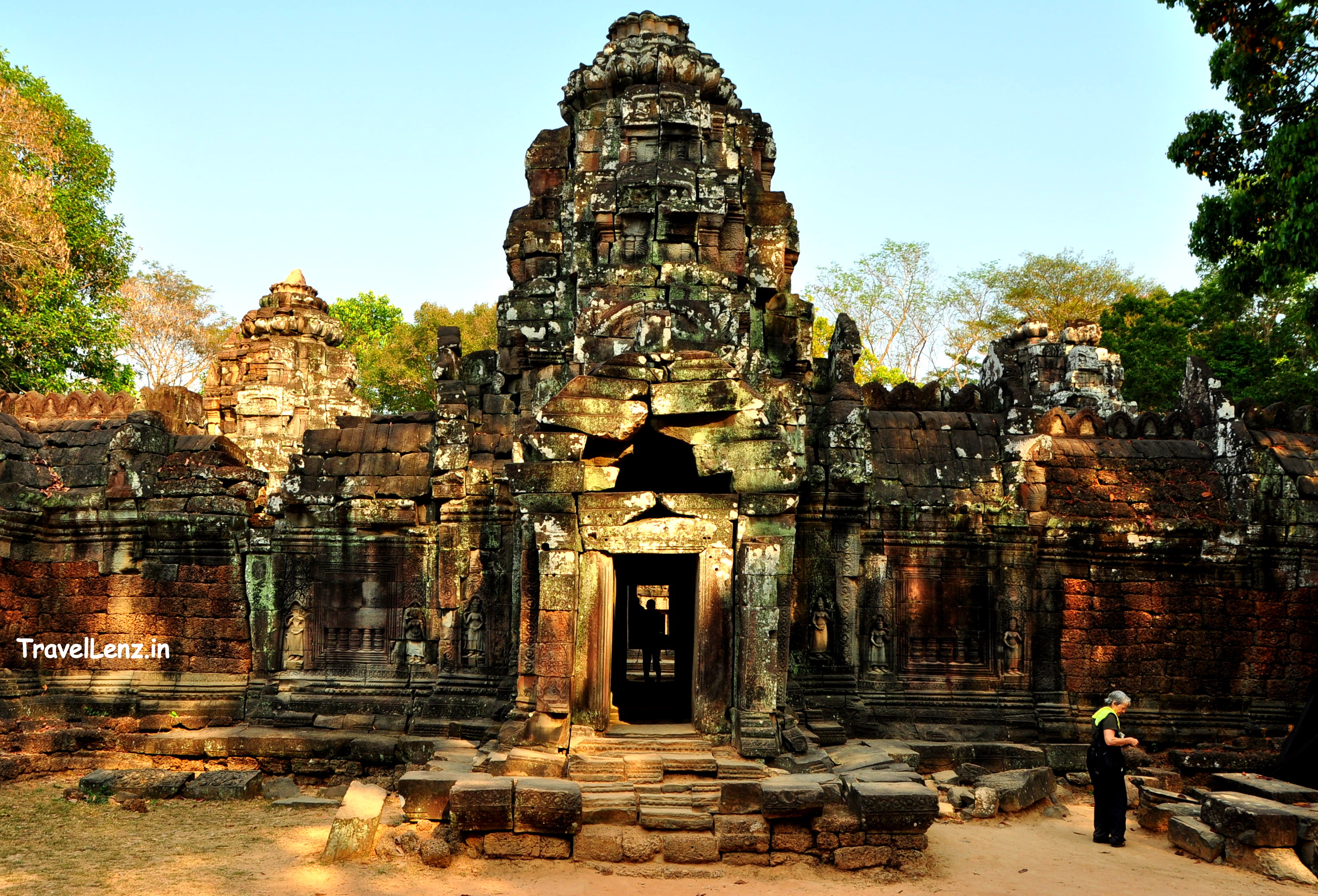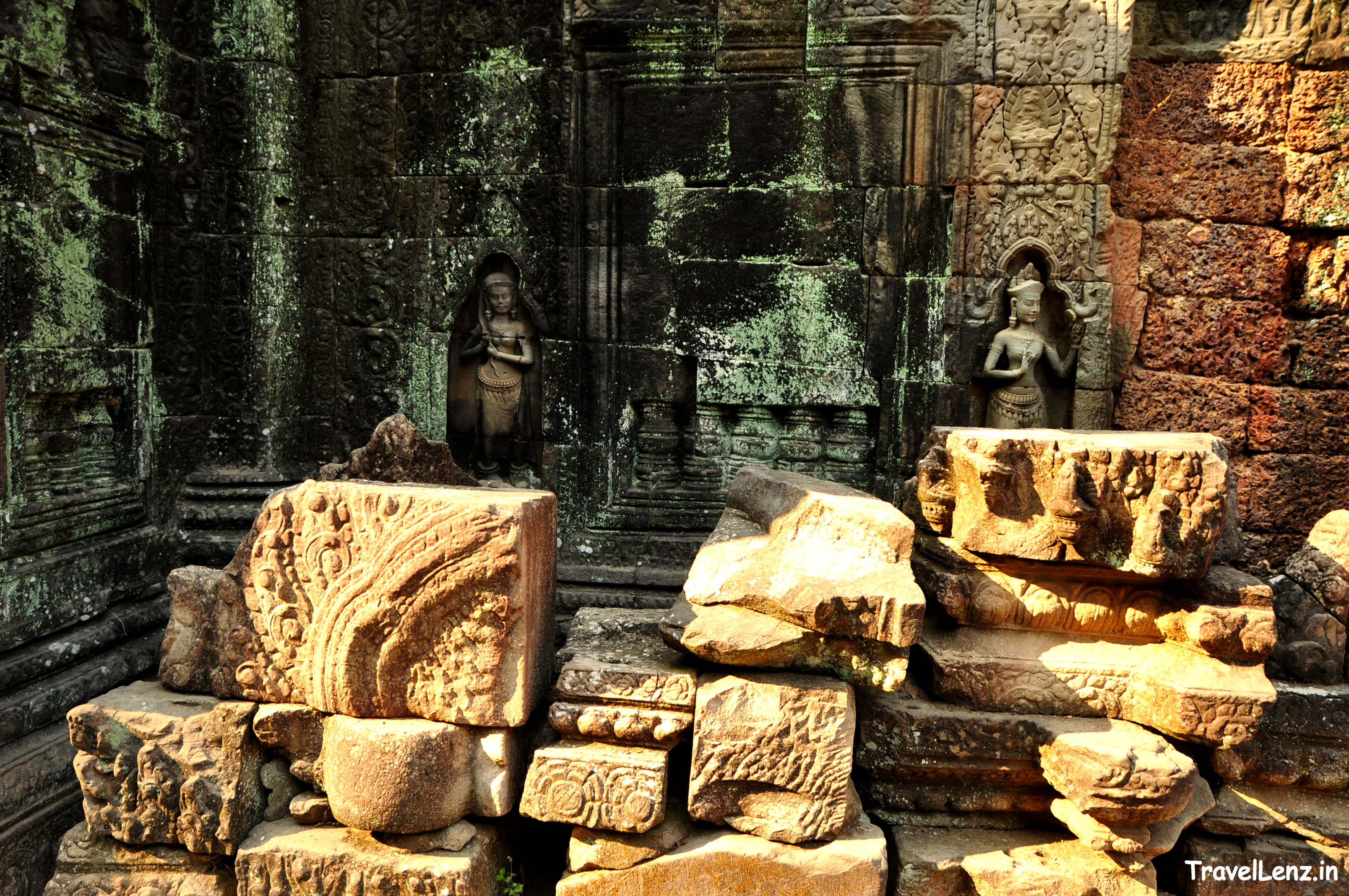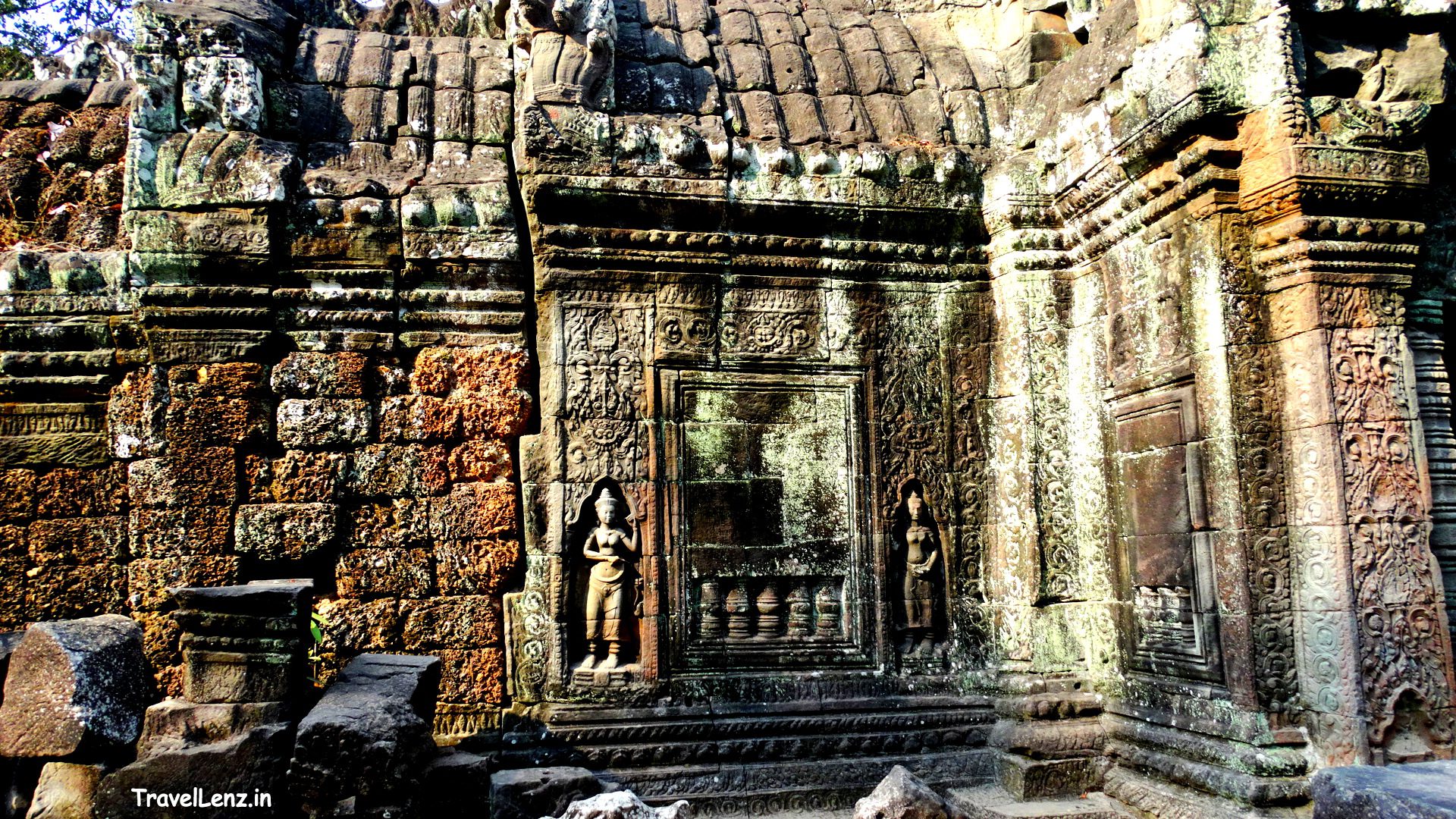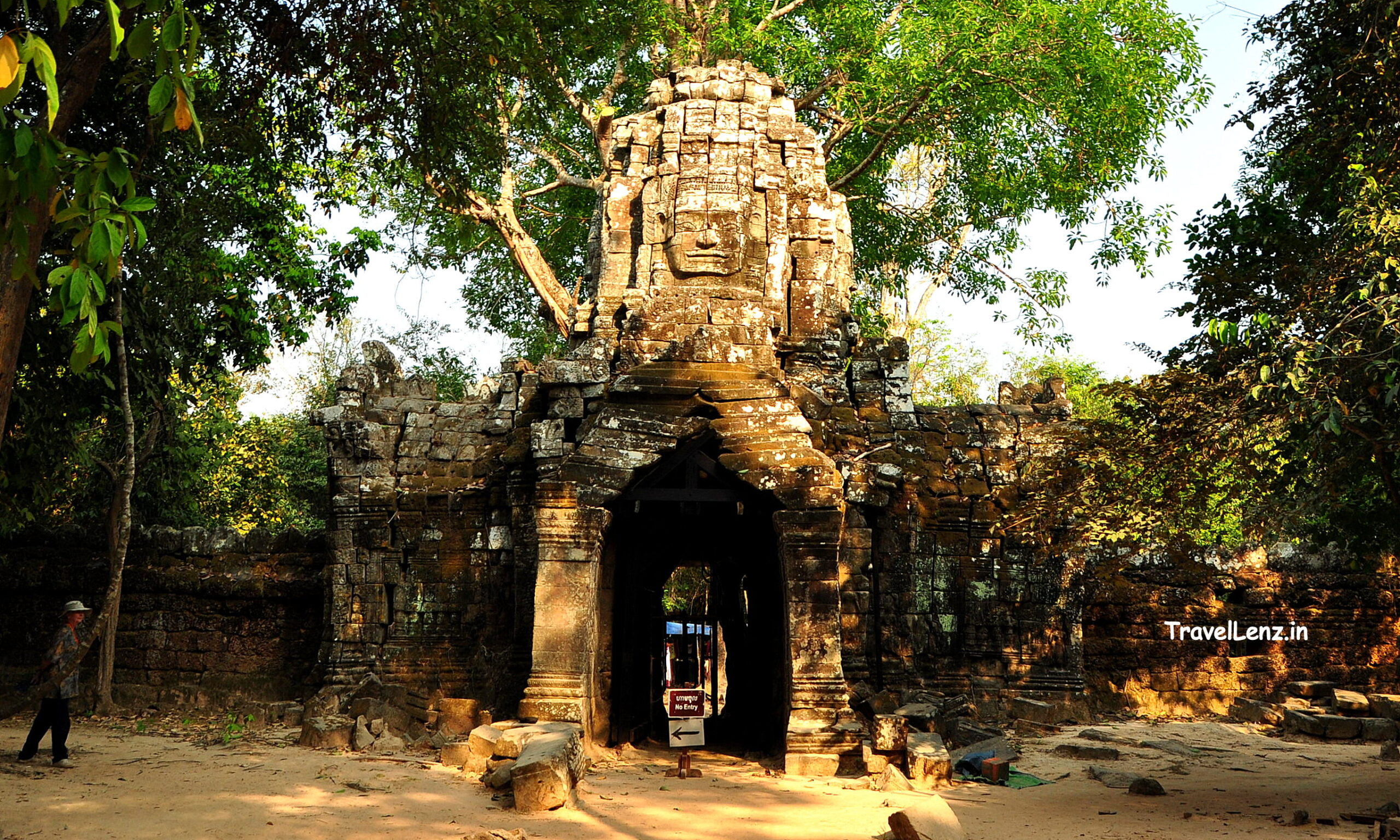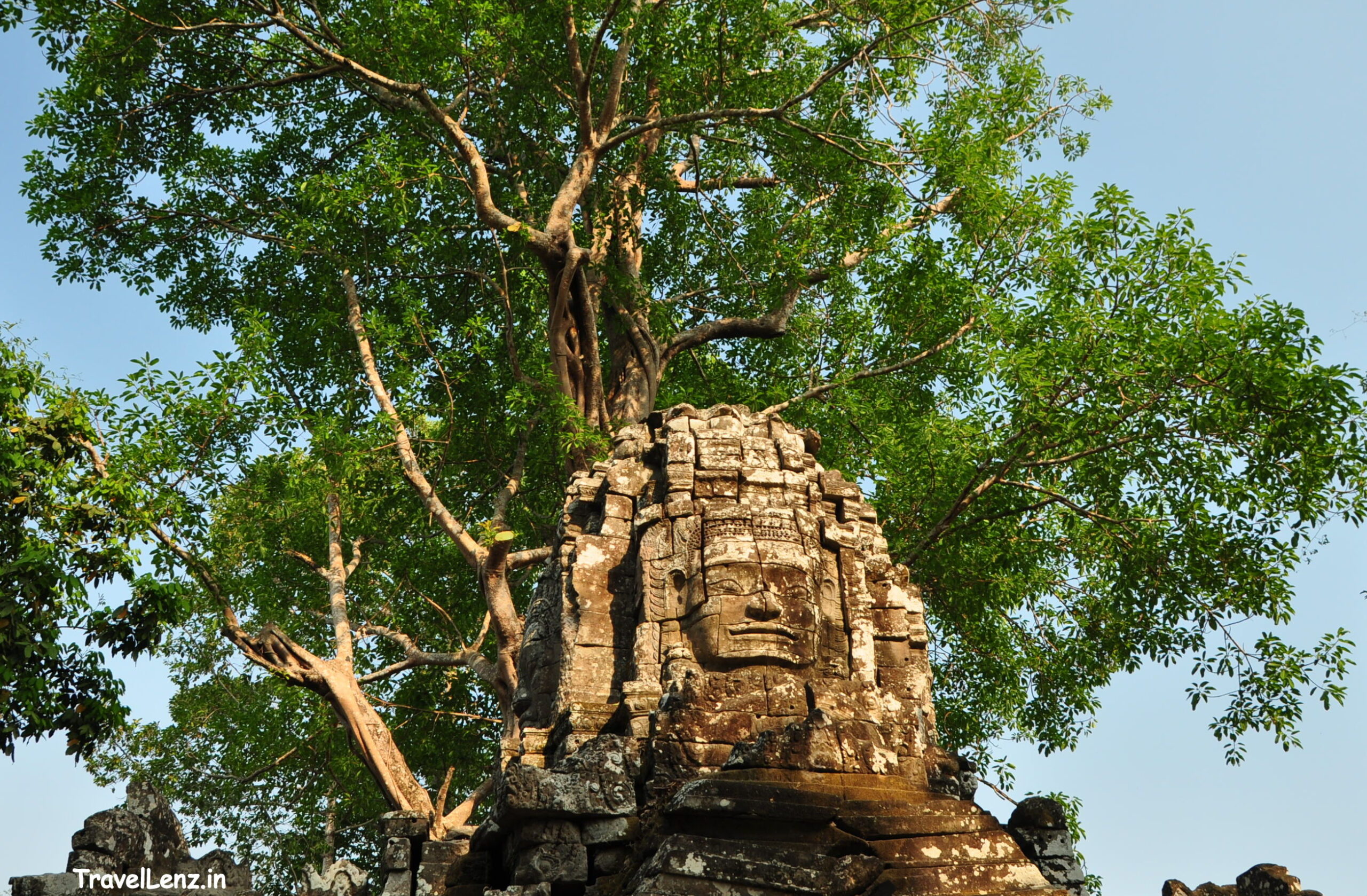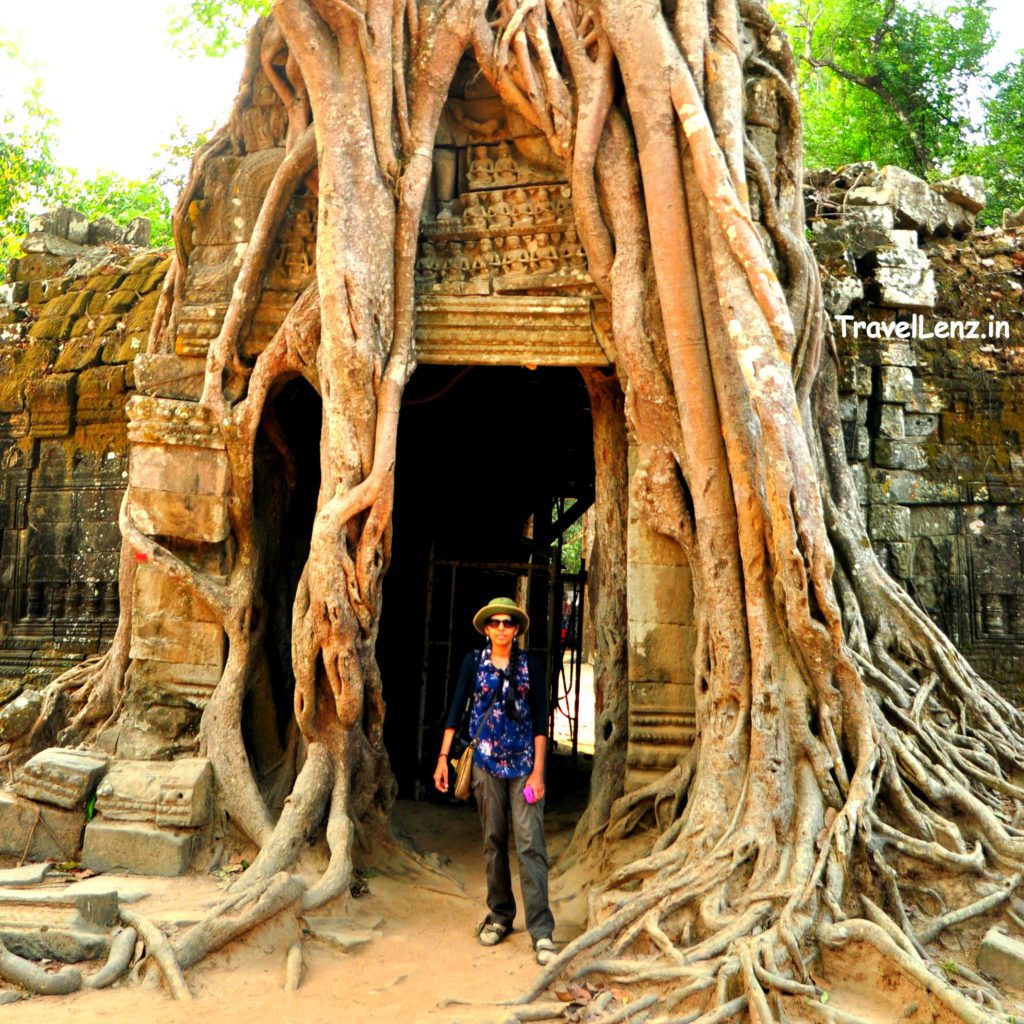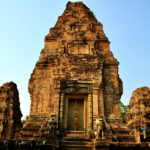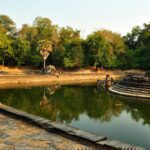Last Updated on May 21, 2021
The Khmer temple of Ta Som was relatively small when compared to the many other temples built under Jayavarman’s reign. Tes mentioned that it was frequently skipped by tourists who were more interested in visiting the better-known sites in the complex.
Good for us, when we got to the temple from East Mebon, there were not many tourists around. No being jostled by crowds, no standing in line to take a photo.
Western gopura
We entered from the western side of the temple, passing through the western gopura. The gopura was topped with large faces of Avalokiteshvara, facing in all four directions.
There are entrances from both the east and west side, both the gopuras were topped with large faces in a similar style as those we saw at Angkor Thom and Bayon. Both Bayon and Ta Som were built by the same ruler, King Jayavarman VII.
This temple, as many of the other Khmer temples, had three concentric enclosures. The main sanctuary was located at the centre and had two libraries on either side. As we walked through the complex, we found both Buddha and Hindu depictions on the lintels and pediments.
Ta Som – Central sanctuary
The central sanctuary was topped with a tower that had almost fallen down. The complex ground was covered with huge stone blocks, remnants of idols and linga pedestals. Some of the galleries were completely blocked by stones.
The walls were adorned with sculpted devatas and other carvings. Tes mentioned that several depictions of Buddha were defaced in the 13th century when the official Angkor religion was changed back to Hinduism.
One carving that stood out was that of a standing Lokeshvara, the bodhisattva of compassion, with his arms stretched out and flanked by a number of devotees. We found this carving on a pediment that was lying on the ground.
Strangler fig roots and the eastern gopura
Like all the other Khmer temples, the eastern gopura was originally used as the main entrance to Ta Som. However, the eastern gopura is now blocked by the tree roots of a strangler fig.
We walked to the back of the temple, cut across a wall to take a look at the tree-framed eastern gopura. With its gopura enveloped by a large Ficus tree, it’s hard to separate nature from the temples throughout the Angkor Archaeological Park.
Every temple at Angkor has a different character and Ta Som was beautiful, a quieter mini version of Ta Prohm. But, how long would it take before it collapsed under the weight of the roots? Only time will tell!!
Another destination, another temple – the next Angkor wonder was Neak Pean.


